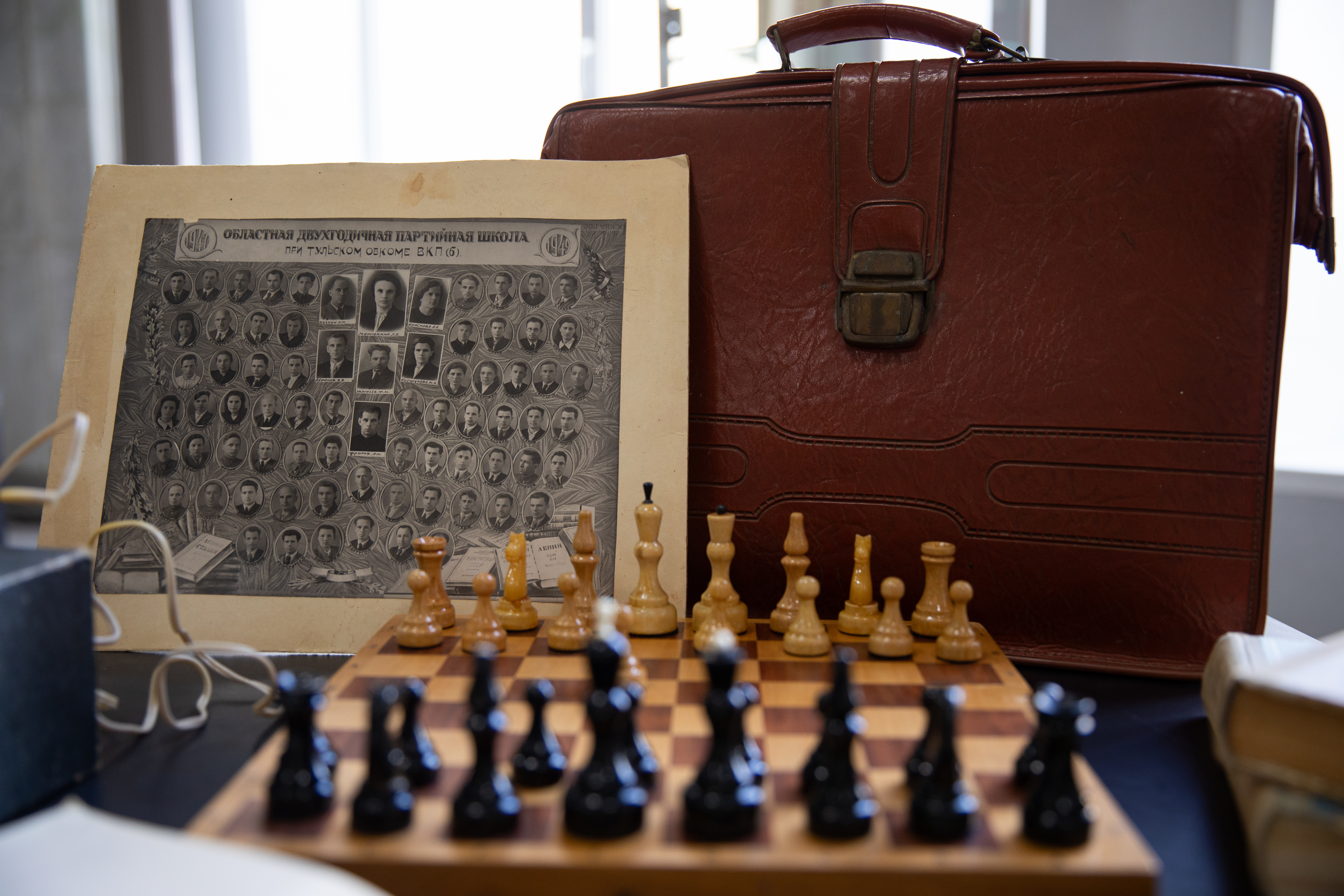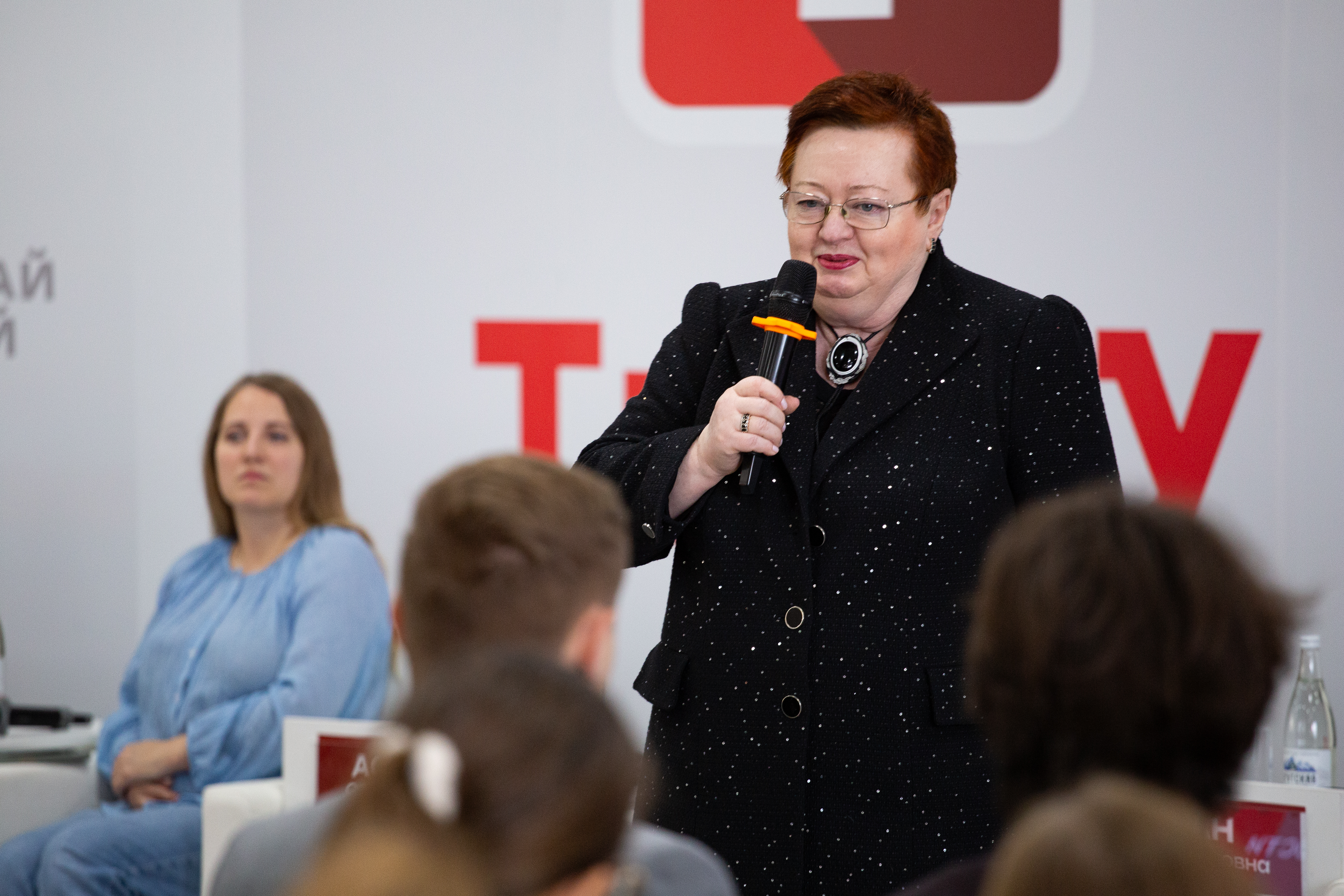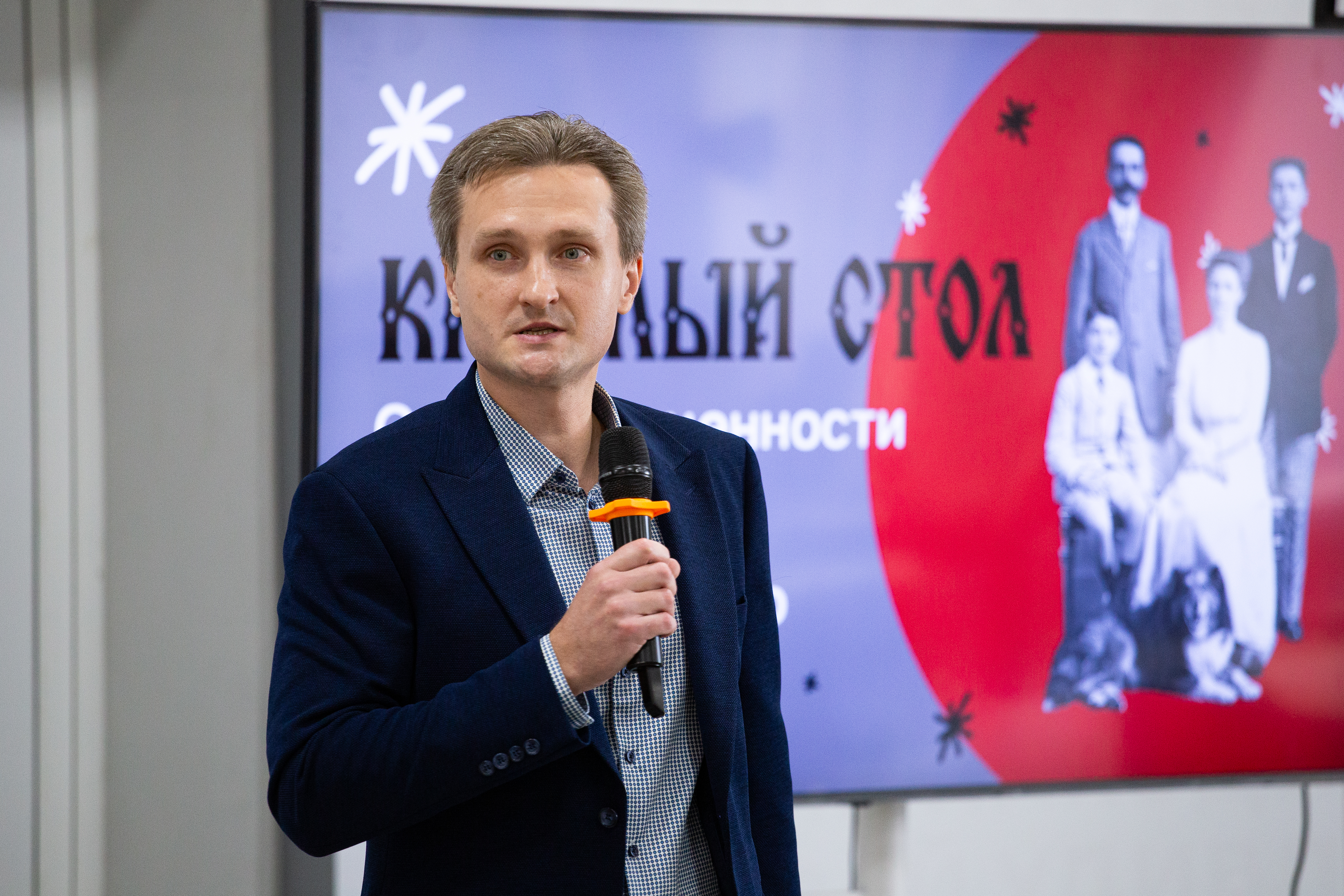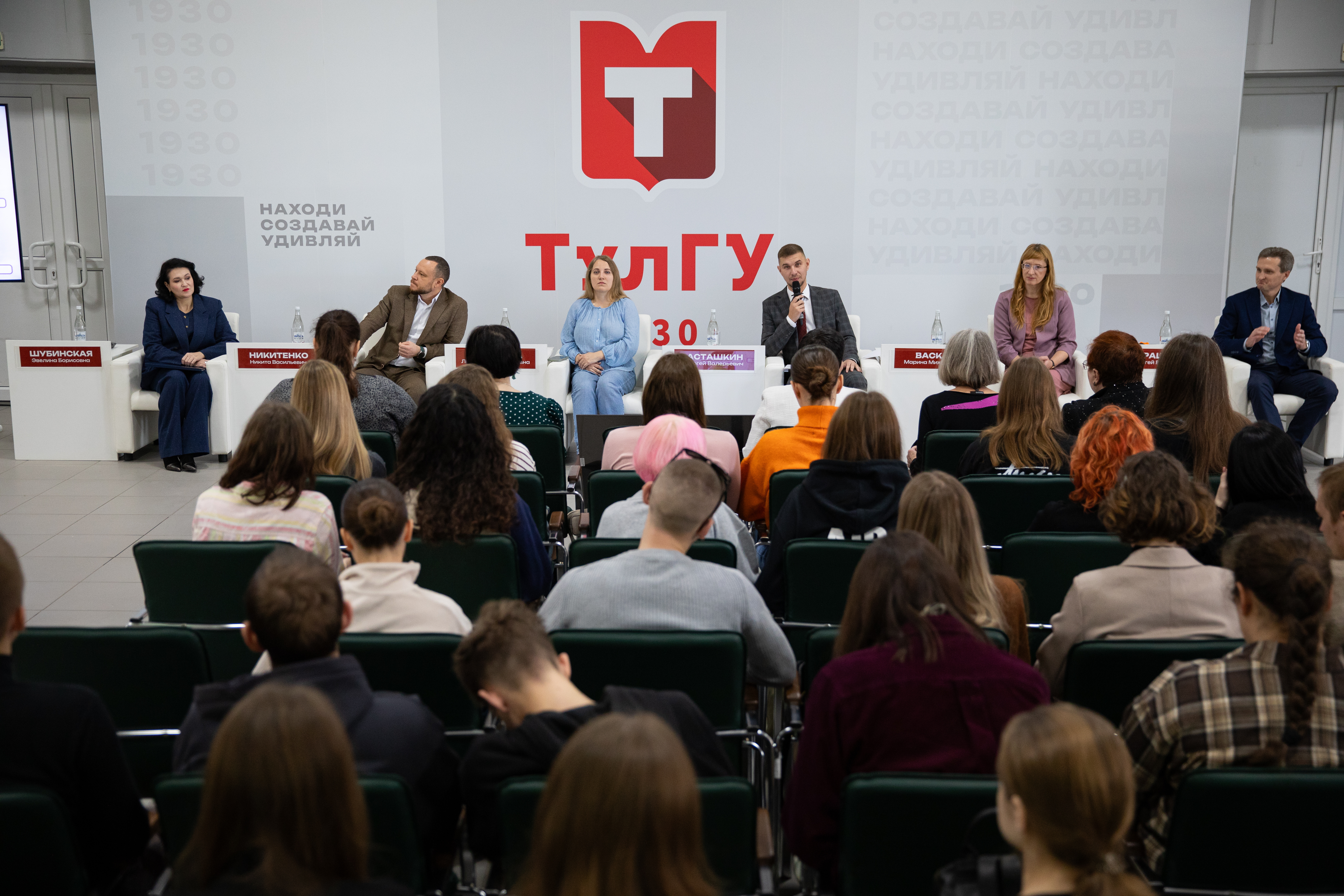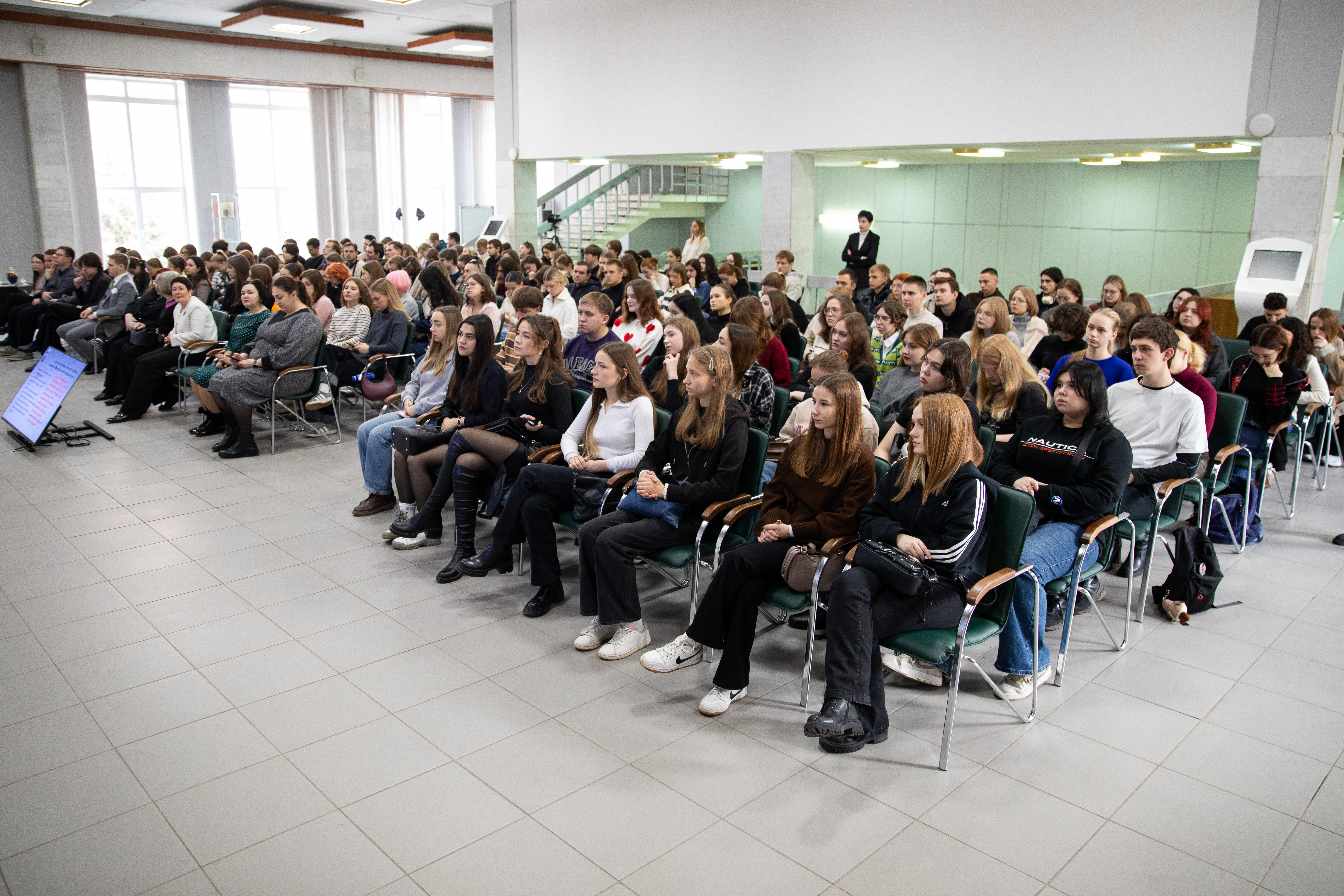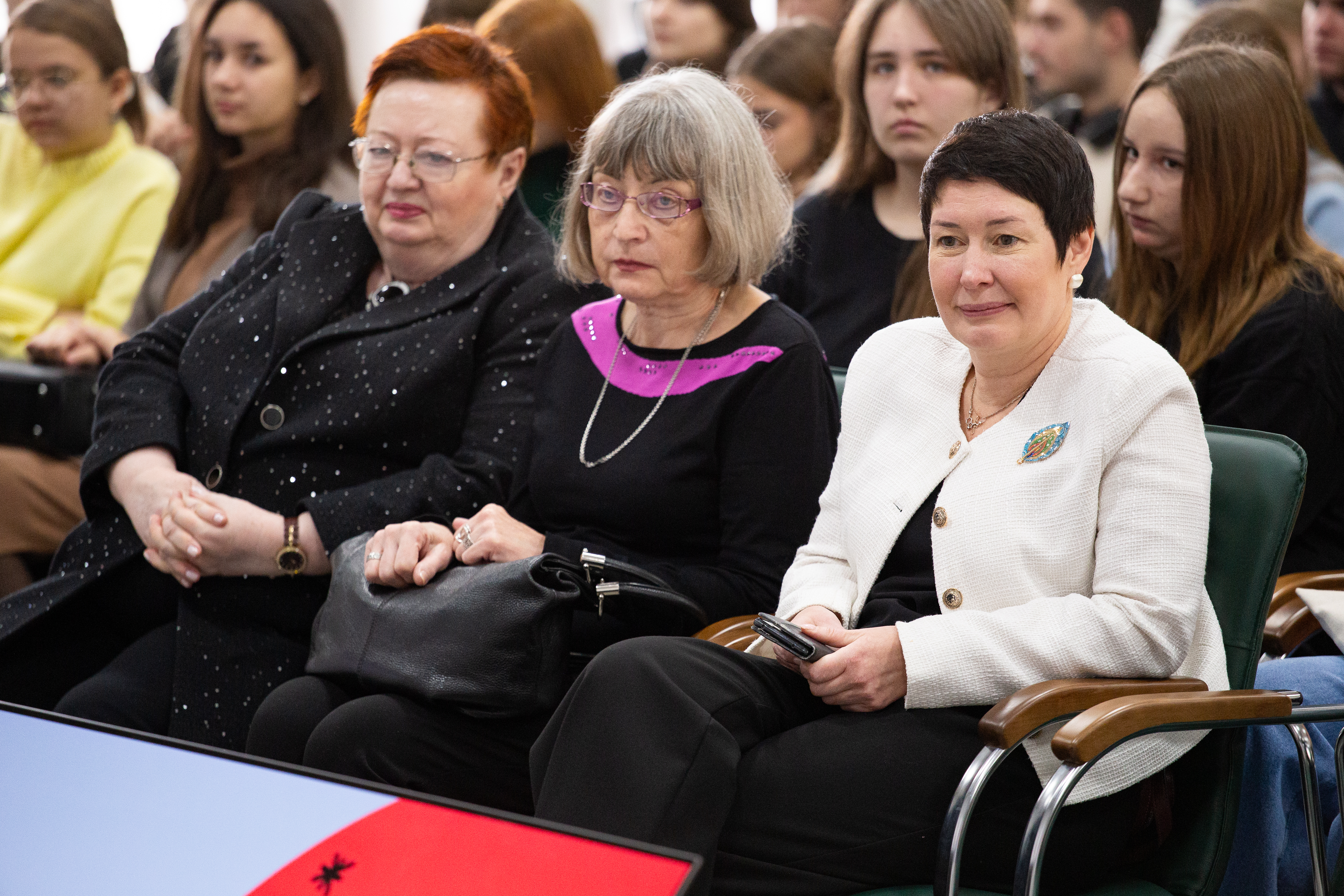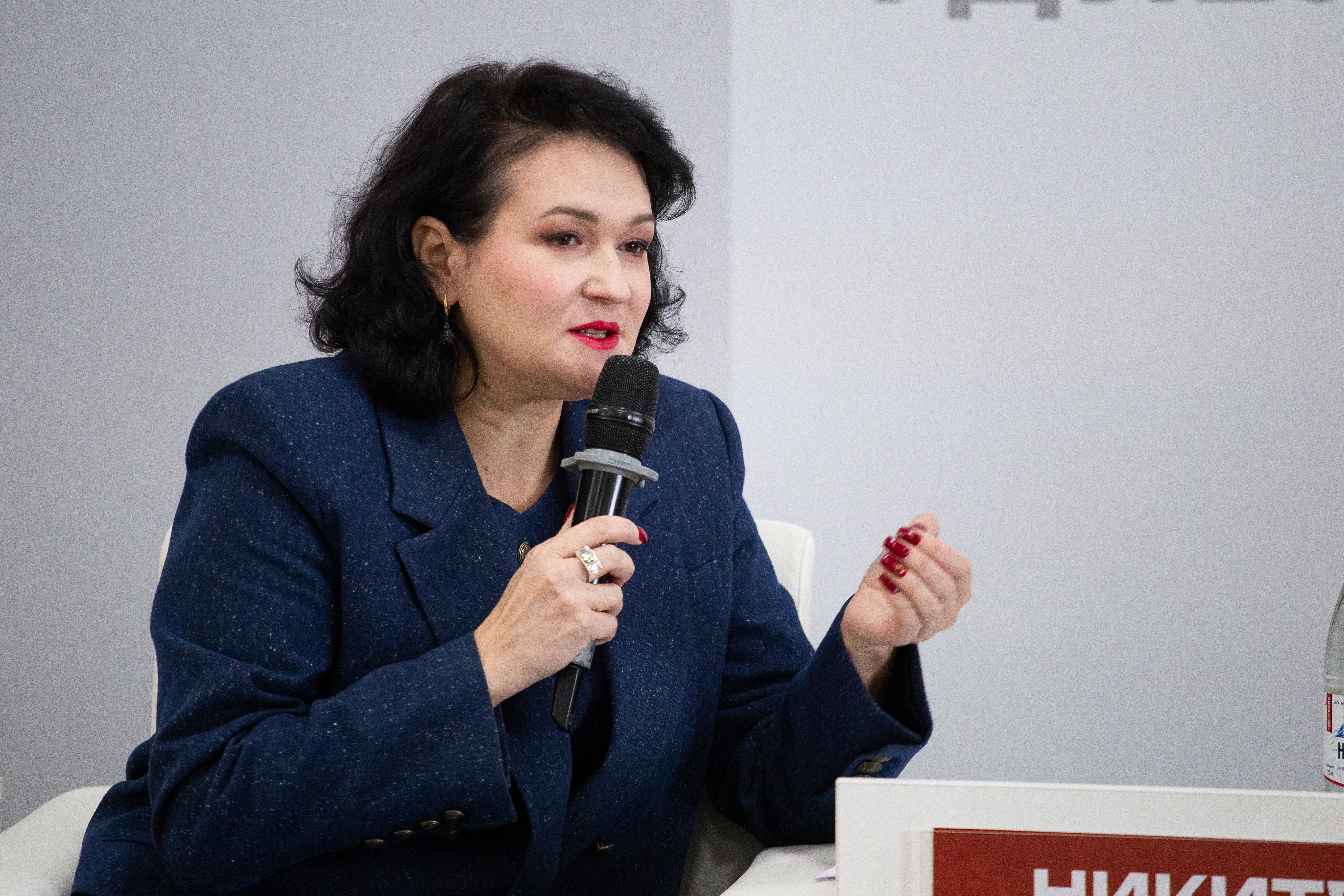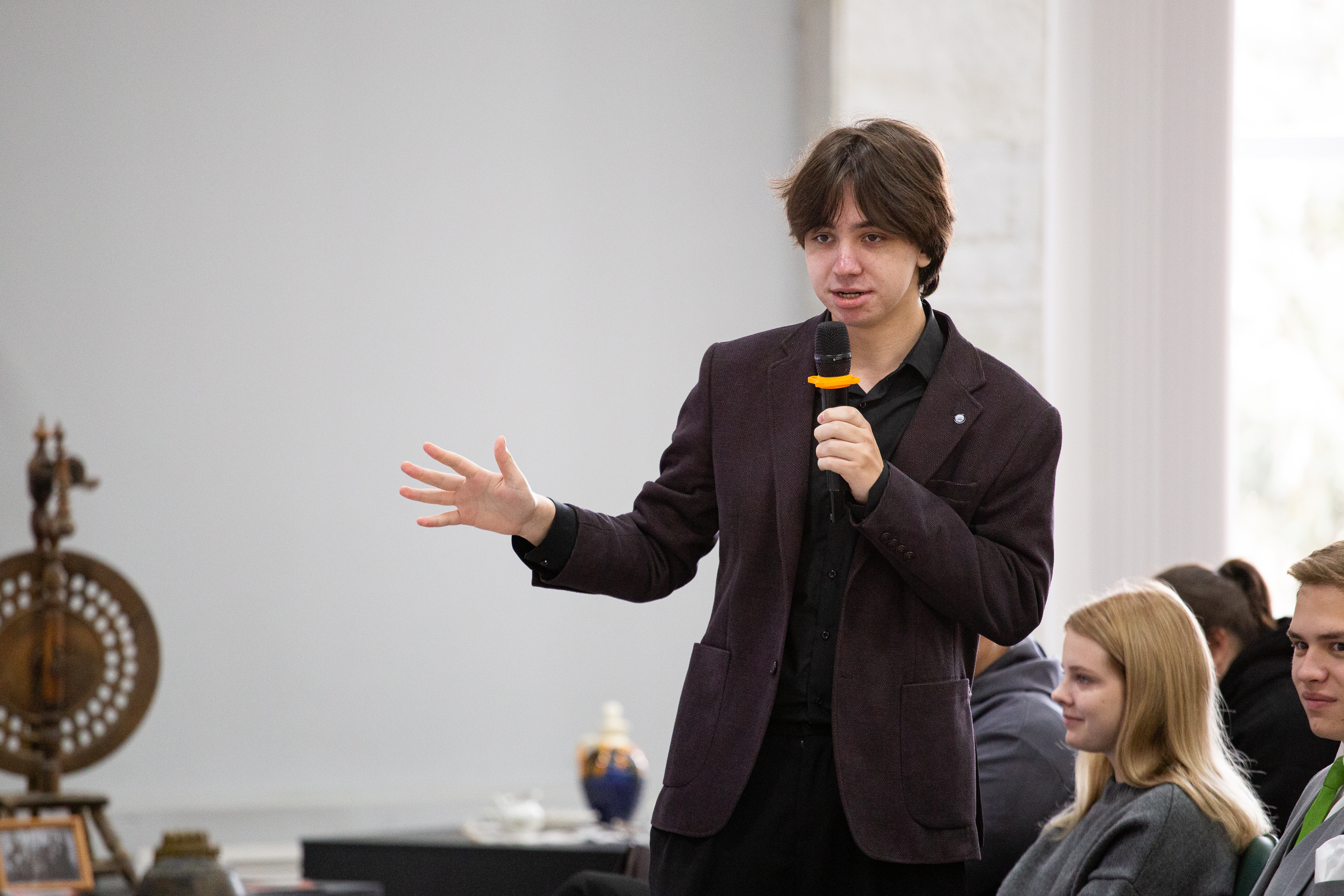- 16.10.2025 12:42
Family as the Basis
A roundtable discussion titled "Family Values as a Priority for the State and Civil Society" was held on October 16 at Tula State University.
It was organized by the Institute of Humanities and Social Sciences.
"The topic of today's event is extremely relevant!" Irina Aleksandrovna Batanina, Doctor of Political Science, Professor, and Head of the Department of Sociology and Political Science, addressed the participants. "Family is one of the most important social institutions where people learn norms of behavior and how to live among others. Family is also at the core of a one's personal qualities, the qualities they will pass on to their children. Family implies love, support, education, respect, and care. It's not without reason that they say that a strong family is a strong society."
Professor Batanina's welcoming words served as a kind of preamble to the speeches that followed. Indeed, the importance of a strong and united family is recognized within the very core of our society. However, the concept of "family" itself is much broader and it resonates with a sense of Homeland. So where does Homeland begin? With love and respect for the place where you were born, for the people around you, and for the good traditions.
Deputy Minister of Youth Policy of the Tula Region, Sergey Valeryevich Astashkin, dedicated his speech to the extensive work being done in our region to foster patriotic education among youth and the younger generation. He described a range of activities aimed at engaging young men and women in socially beneficial activities and instilling the traditional values of Russian society in them.
The guest encouraged young people to be proactive, develop their own interesting projects, and win grants to implement them.
Nikita Vasilyevich Nikitenko, Director of the Tula State University Coordination Center, focused the audience's attention on supporting the family as a national development goal for Russia. He also addressed the issue of separating parenthood from marital obligations and the gradual weakening of the marriage-child bond.
Nikita Vasilyevich's emotional speech resonated with the audience. Students asked him what he would propose if tasked with creating a family support program.
First, the speaker responded, he would propose low mortgage rates to provide housing for young couples, and second, comfortable working conditions for women with children. Third, Nikita Vasilyevich emphasized, it is necessary to develop a set of measures to help parents understand what awaits their children in the future and what social mobility opportunities they will be able to take advantage of.
Evelina Borisovna Shubinskaya, Director of the Tula Region State Institution "Family Multifunctional Center 'My Family Center,'" spoke about the activities of her organization.
The center's main goal, she said, is to prevent divorce, abortion, newborn abandonment, and the risk of family hardship, as well as to improve the effectiveness of accessible, comprehensive social assistance for families with children.
Marina Mikhaylovna Vaskan, head of the Tula regional public organization for strengthening and developing families, "Families Change the World," also delivered a speech. She introduced the students to the "Sbligeniye" (“Growing Rapport”) project, aimed at creating conditions for strengthening family relationships, as well as the social and psychological training "Preparing Youth for Family Life." She invited all the students to participate.
Larisa Aleksandrovna Churikova, head of the Tula regional public movement for family support, "MamKompaniya," discussed in detail projects that promote family values and preserve intergenerational ties.
Sergey Anatolyevich Pankratov, a political scientist and professor at Volgograd State University, joined the participants via videoconference. He touched on the sensitive topic of value challenges and choosing moral guidelines. He also invited the students to reflect on the spiritual foundations of the modern family.
Anastasiya Aleksandrovna Lavrikova, Doctor of Political Science, Professor, and Acting Director of the Institute of Humanities and Social Sciences, thanked the experts for allowing her to look at the family in a new light.
"Family isn't just about upbringing, but also about politics and history," she emphasized. "The history of a country is shaped by the histories of all families."
Anastasiya Alexandrovna invited the participants to visit the exhibition "Dialogue Through Time: Family Values through Artifacts," lovingly curated by the faculty and students of the Institute of Social Sciences and Humanities.
"The exhibition is assembled from parts of our families," she said. "And in the context of today's event, I'd like to conclude my speech with a phrase from a past advertisement: “Don't forget to call your parents!” Some of you might even call your grandparents. After all, family is the most important thing in our lives!"
The exhibition was truly impressive! Family albums, great-grandfather's imposing briefcase, antique dishes, great-grandmother's spinning wheel, a pasochnitsa (Easter basket) carved by grandfather's skillful hands (which, by the way, is still in use today), and even a 1900 edition of A.S. Pushkin.
Truly, every family is a true fount of traditions, talents, and worldly wisdom!
Tatyana Krikunkova
Photos by Ilya Khodakovskiy


